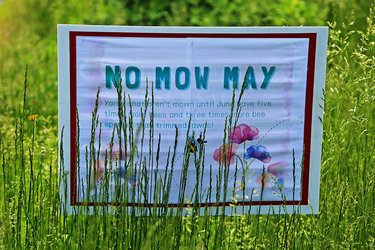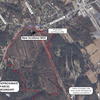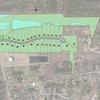New Scotland looks to police residents’ lawns, trash
NEW SCOTLAND — New Scotland is considering a local law that would require its property owners to pay better attention to their grass and garbage.
Proposed Local Law C of 2022 seeks to “provide for the proper maintenance of residential, commercial, and industrial properties” in town “to prevent blight, unhealthy, hazardous, or unsightly conditions due to the accumulation of brush, grass, weeds, garbage or rubbish in order to protect the public, health, safety and general welfare of the residents ….”
An in-person public hearing on the proposed law is currently scheduled for Aug. 10, at 6: 30 p.m., at Town Hall.
Councilman William Hennessy said during the town board’s July 13 meeting that New Scotland considered a similar law about five years ago. “We had some property issues and complaints on Game Farm Road,” he said.
Hennessy said the latest law came about because of issues in the Heldervale area of town, “and some properties that ha[d] some difficult plumbing elements.”
But Hennessy said “the most important part” of the new law is that it will bring New Scotland into stricter compliance with the New York State Building Code, specifically the state’s property maintenance code — Section 302.4 — which has to do with weeds.
The state code says, “Except as provided for in statute, local law, ordinance, or other regulations, all developed areas of a premises that are intended to be used by building occupants or the public shall be maintained free from weeds in excess of 10 inches (254 mm). Noxious weeds shall be prohibited.”
Hennessy said, “We are really just doing this to be in compliance with” the state building code and “to be more explanatory.”
Town attorney Michael Naughton told The Enterprise on July 18, “These things are not uncommon, to have property maintenance laws.” But declined further comment when asked to explain the legality of a town telling its property owners what they can and can’t do with their land.
Local Law C of 2022
The proposed local law states it “shall be unlawful” for a residential, commercial, or industrial property owner to:
— Permit or maintain weeds, grass, or other vegetation to a grow to a height of over 10 inches for over 45 days;
— Permit the accumulation of dead weeds, grass, or brush for over 45 days; and
— “Permit, maintain, deposit, or scatter rubbish or garbage over any premises.”
The proposed law has a carve-out for agricultural operations and farmland as well as “drainage areas or natural open space areas” when it comes to limiting the height of weeds, grass, and other vegetation.
There is also a provision to allow for “No Mow May,” which “is a policy to discourage grass cutting during the month of May for the benefit of pollinators and other wildlife,” according to the proposed law.
Proposed Local Law C of 2022 also states garbage being placed outside a building can only be done so if it’s placed in a “covered metal, wooden, or molded plastic receptacle.”
It further states it “shall be the duty” of residential, commercial, or industrial property owners to:
— Maintain their properties “in a clean and sanitary condition and not permit the accumulation of rubbish or garbage”;
— Cut and remove “all such weeds, grass or other rank, poisonous or harmful vegetation as often as may be necessary to comply with the provisions of this law”; and
— Remove any trash accumulation “that has remained on the property for more than 30 days.”
As for the enforcement mechanism, New Scotland is counting on neighbors to call the town on one another, and code enforcement would take it from there.
Ultimately, garbage violations would receive $250 for the first offense and “$500 for the second or subsequent offense for a term not exceeding 15 days.”
Property owners not caring for their grass would get their lawn mowed for them by a town-selected contractor and get that bill added to their town taxes.
Property owners would have the opportunity to grieve their fines.



